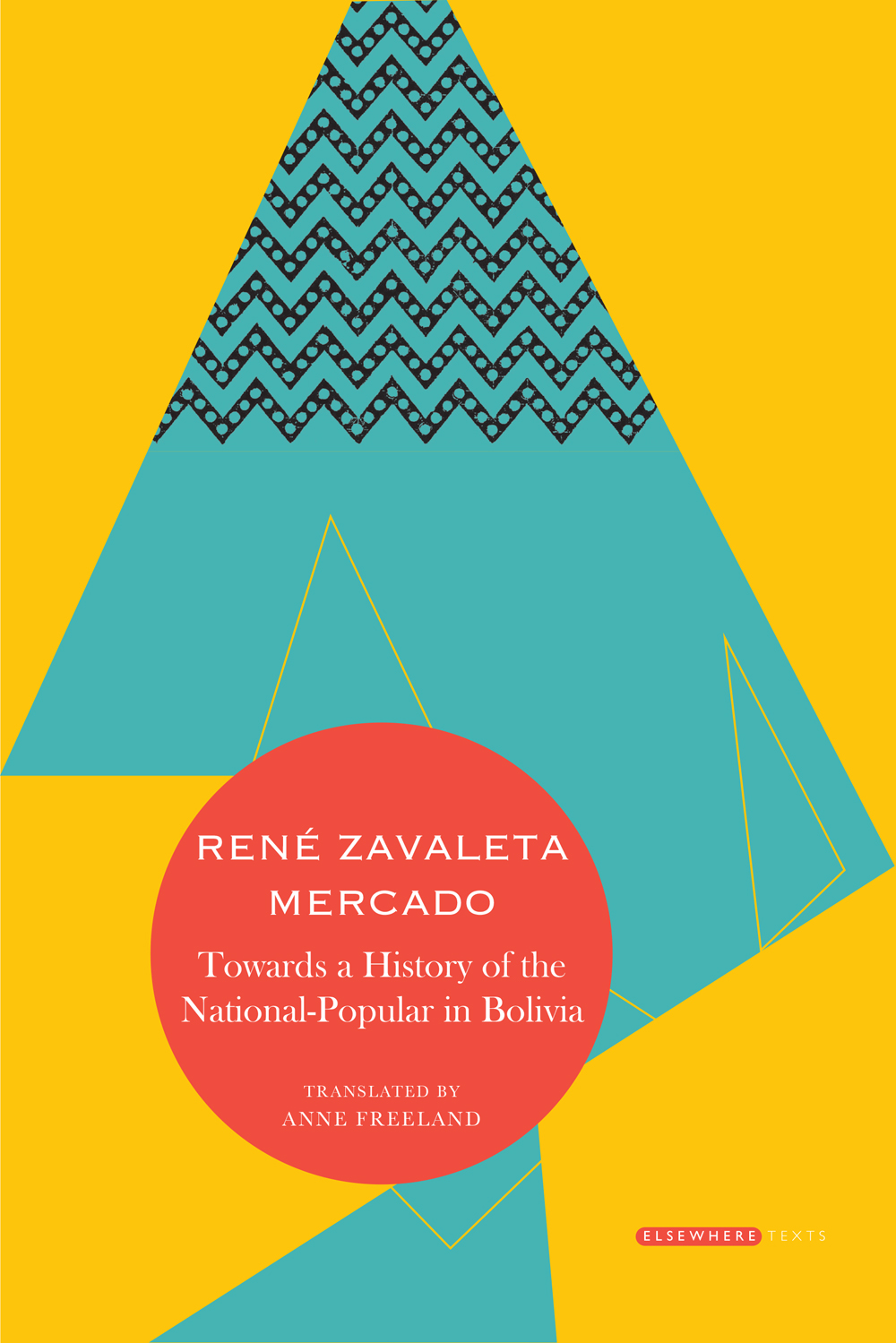Towards a History of the National-Popular in Bolivia
René Zavaleta Mercado
Translated by Anne Freeland
Forthcoming
6 x 9 inches, 304pp January 2017
ISBN : 9780857423580
Rs 750.00 (HB)
$35.00 (HB)
£24.50 (HB)
The National-Popular in Bolivia is the final work of one of South America’s most important public intellectuals, René Zavaleta Mercado. Published posthumously, it explores a series of critical moments in Bolivian history from the late nineteenth to the early twentieth century to illuminate the reconstitution of seigneurial rule and the challenges to it posed by plebeian, Indigenous and working-class projects for a more inclusive form of the nation. It is a work of reflexive social theory that explores the limits of its own conceptual frameworks—including classical political philosophy and Marxism—through an engagement with the history that made possible its own conceptual horizons. In its content, method, and style, it offers an original reflection on social formations and political knowledge that have far-reaching implications for the Global South.
The so-called ‘pink tide’ of left-of-centre governments in Latin America in the twenty-first century, and specifically the election of Evo Morales in Bolivia as the first Indigenous president of the continent, have prompted renewed interest in national-popular projects and Zavaleta’s work as a revolutionary thinker attuned to the specificities of the local. This last and most influential of his works—and the first to be translated—attests not only to the value of this local focus within the field of Latin American studies but to the relevance of non-metropolitan histories for revolutionary theory in general. This study makes contemporary a long genealogy of theories of the national-popular, from Gramsci and Mariátegui to Fanon and Ho Chi Minh. Its current relevance and historical rootedness make it an exemplary first text for Elsewhere Text, a series exploring neglected traditions of radical thought.
René Zavaleta Mercado was Bolivia’s foremost social and political theorist. Born in the mining city of Oruro in 1937, he held diplomatic and ministerial posts with the Revolutionary Nationalist Movement in the late 1950s to mid 60s. In the late 60s, he aligned with the Marxist left, and in the 70s developed his creative, heterodox Marxist position that is reflected in this final work. He directed the Latin American Social Sciences Institute while in exile in Mexico City in the years before his death in 1984.
Anne Freeland is a PhD candidate in Latin American cultural studies and comparative literature at Columbia University, New York.
Elsewhere Texts
History
Politics

 Buy (HB)
Buy (HB)